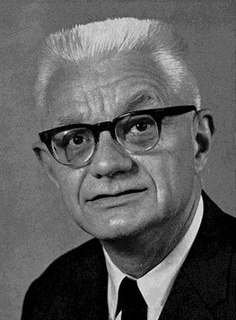Цитата Говарда Гарднера
Истина касается предложений. Когда дело доходит до определения истины, жизненно важно понимать методы, используемые людьми при утверждении утверждений.
Темы цитат
Связанные цитаты
Существуют различные трактовки проблемы универсалий. Я понимаю это как проблему предоставления создателям истины суждений о том, что определенное частное является таким-то и таким-то, например, суждений типа «эта роза красная». Другие интерпретировали это как проблему онтологических обязательств таких предложений или проблему того, что эти предложения означают.
Многие люди, называющие себя дефляционистами, являются дефляционистами в отношении пропозициональной истины, но не пропозициональной истины. Я всегда упоминаю эту точку зрения только для того, чтобы отличить ее от дисквотационизма. На самом деле у меня нет против этого никаких возражений, кроме того, что я не верю в пропозиции, поэтому я не думаю, что существует такая вещь, как истинность пропозиции. Истина, на мой взгляд, есть прежде всего свойство представлений, таких как предложения и определенные виды ментальных состояний.
Положения математики, таким образом, обладают той же бесспорной достоверностью, которая типична для таких утверждений, как «Все холостяки неженаты», но они также разделяют полное отсутствие эмпирического содержания, связанное с этой уверенностью: предложения математики лишены весь фактический контент; они не передают никакой информации ни о каком эмпирическом предмете.
Математика – это логический метод. . . . Математические предложения не выражают мыслей. В жизни нам никогда не нужны математические суждения, но мы пользуемся математическими суждениями только для того, чтобы вывести из суждений, не принадлежащих математике, другие, которые точно так же не принадлежат математике.
Для человека неправильно говорить, что он уверен в объективной истинности какого-либо утверждения, если он не может привести свидетельство, которое логически оправдывает эту уверенность. Это то, что утверждает агностицизм; и, по моему мнению, это все, что существенно для агностицизма. То, что агностики отрицают и отвергают как аморальное, — это противоположное учение, согласно которому существуют положения, в которые люди должны верить без логически удовлетворительных доказательств; и что осуждение должно быть связано с исповеданием неверия в такие неадекватно подкрепленные суждения.
Мои предложения служат разъяснениями следующим образом: всякий, кто меня понимает, в конце концов признает их бессмысленными, когда он использовал их — как ступеньки — для того, чтобы взобраться выше них. (Он должен, так сказать, отбросить лестницу после того, как поднялся по ней.) Он должен превзойти эти положения, и тогда он увидит весь мир правильно.
Библия – замечательная книга. Это правда об Истине. Это не Истина. Проповедь, взятая из Библии, может быть чудесной вещью. Это правда о правде о правде. Но это неправда. О вещах, содержащихся в Библии, написано много книг. Я сам написал некоторые. Их можно прекрасно читать. Это правда об истине об истине об истине. Но они НЕ Истины. Только Иисус Христос есть Истина. Иногда Истина может утонуть во множестве слов.
Под этим мы можем понять, что есть два вида познания, из которых одно есть не что иное, как чувство, или изначальное познание (как я сказал в начале второй главы), и воспоминание о том же самом; другое называется наукой или знанием об истинности предложений и о том, как называются вещи, и происходит от понимания.

































